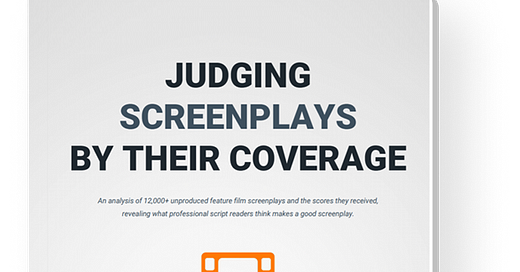Judging Screenplays By Their Coverage
An analysis of 12,000+ unproduced feature film screenplays and the scores they received, revealing what professional script readers think makes a good screenplay. In partnership with Screencraft.
An analysis of 12,000+ unproduced feature film screenplays and the scores they received, revealing what professional script readers think makes a good screenplay. In partnership with Screencraft.
We analysed 12,309 feature film screenplays that were submitted to screenplay competitions and for script reports. All of the scripts were read by professional script readers, who gave the scripts an overall score as well as scores for other factors, including plot, characterization and voice. We looked for connections and correlations to discover what professional script readers think a good screenplay looks like.
The report goes into more detail and more topics, but below are nine tips screenwriters should take on board to help improve their chances of impressing script readers.
Know thy genre. Your priorities should rest on the particular nature of your chosen genre. For example, Family films place the highest premium on catharsis, while for Action films it’s plot.
Some stories work better than others. The vast majority of scripts can be summarized using just six basic emotional plot arcs – and some perform better than others.
If you’re happy and you know it, redraft your script. Film is about conflict and drama and for almost all genres, the happier the scripts were, the worse they performed. The one notable exception was comedy, where the reverse is true.
Swearing is big and it is clever. There is a positive correlation between the level of swearing in a script and how well it scored, for all but the sweariest screenplays.
It’s not about length, it’s what you do with it. The exact length doesn’t matter too much, so long as your script is between 90 and 130 pages. Outside of those approximate boundaries scores drop precipitously.
Don’t rush your script for a competition. The closer to the deadline a script was finished, the worse it performed.
Use flashbacks responsibly. Scripts with more than fifteen flashbacks perform worse than those with few to no flashbacks.
VO is A-OK. Some in the industry believe that frequent use of voiceover is an indicator of a bad movie, however we found no such correlation. We suggest that any complaints on the topic should be sent to editors, rather than writers.
Don’t worry if you’re underrepresented within your genre – it’s your superpower. Female writers outperform male writers in male-dominated genres (such as Action) and the reverse is true in female-dominated genres (such as Family).




